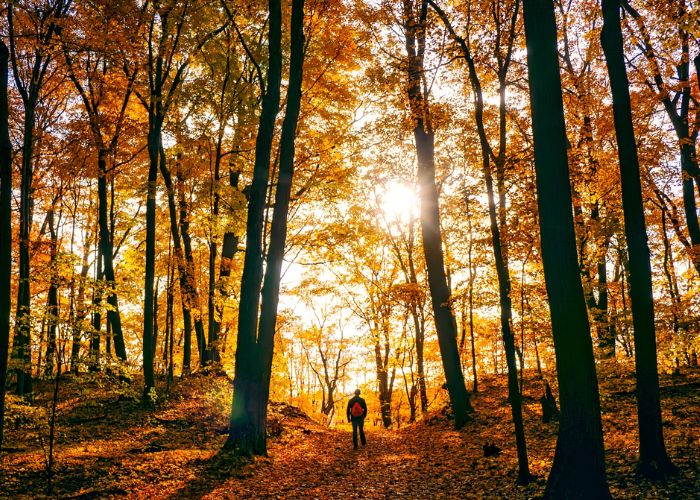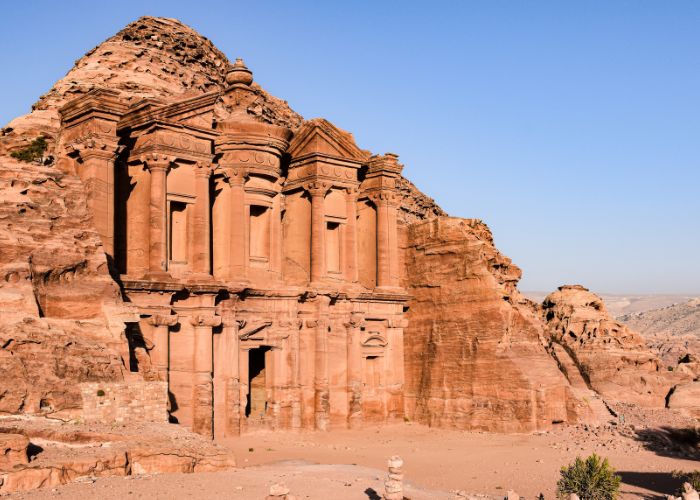How to Choose the Best Camping Stove Fuel: An Easy Guide
- , by Rio Boyes
- 14 min reading time
Discover how to choose the best camping stove fuel for your outdoor adventures with Wood To Water. Compare options like propane, butane, & more for your trip.
Not sure what the best camping stove fuel is for your specific cooker? Our guide covers how to choose the correct one for your stove system, along with our recommendations on which ones work best in various conditions.
In This Guide:
Whether you’ve just bought a new stove and you’re unsure what fuel it needs, or you’re a beginner to the camping scene, choosing the right fuel can be tricky when there are so many types and brands. Some you’ve likely come across include:
- Propane
- Butane
- Isobutane
- Propane/Isobutane
- Liquid fuels
- And alcohol-based fuels
The one you’ll need will depend on a couple of factors, the most important three being,
- The type of camping stove you have
- The temperature and conditions you’ll be camping in
- The duration of your trip
We’ve put together a quick table below with our recommendations based on these, along with specific fuels you can buy from our online shop.
Best Camping Fuel Stove Recommendations
| Camping Stove Fuel Type | Best For… | What We Recommend |
|---|---|---|
| Propane | Type of stove: Top mount or remote canister | Fire Maple 118 — £24.99* |
| Outdoor conditions/temp: Cold temperatures down to -42°C | ||
| Length of trip: Short - Med | ||
| Butane | Type of stove: Top mount or remote canister | Optimus 230g — £6.00 |
| Outdoor conditions/temp: Warm to moderate temps | ||
| Length of trip: Short trips | ||
| Isobutane | Type of stove: Top mount or remote canister | GSI 450g — £11.90 |
| Outdoor conditions/temp: Cooler conditions to 0°C | ||
| Length of trip: Short trips | ||
| Propane/Isobutane | Type of stove: Top mount or remote canister | JetBoil 450g — £10.00 |
| Outdoor conditions/temp: All season | ||
| Length of trip: Short trips | ||
| Kerosene & Liquid Fuel | Type of stove: Wick/ Multi-fuel | Soto Stormbreaker Multi Fuel Stove — £175.00 |
| Outdoor conditions/temp: Very cold temperatures | ||
| Length of trip: Longer trips | ||
| Alcohol-Based Fuel | Type of stove: Alcohol stoves | X Boil Alcohol Burner — £8.50 |
| Outdoor conditions/temp: Mild to warm temps | ||
| Length of trip: Short trips |
Find these high-performance stove fuels to shop on Wood To Water, with free and fast delivery available to the UK.
Most Popular Types of Camping Fuel
There are a few types of camping fuel that outdoor enthusiasts come back to time and time again. These fuels are either easy to come by in camping stores or useful in common camping environments.
Here are the most popular types of camping fuel for UK adventures.
Propane Fuel
|
Best for… ✔ Top Mount or remote canister stoves ✔ Cold weather trips down to -42°C ✔ Short to medium trips |
Propane fuel is super popular for camping trips. It’s efficient and convenient and comes in sturdy canisters or tanks that are a breeze to carry and use.
Propane also works great in all kinds of weather — even in colder climates where other fuels might let you down. That’s why it’s a favourite for year-round campers.
Most portable camping stoves are designed to hook up directly to the canister or use a hose adapter, making them simple to set up.
These stoves give you steady, adjustable heat, so whether you’re whipping up a quick snack or cooking something fancier, propane’s got you covered in the great outdoors.
Butane Fuel
|
Best for… ✔ Top mount or remote canister stoves ✔ Warm to moderate environments ✔ Quick burning for short trips |
What we recommend…
Butane gas fuel is a favourite for camping stoves, and it’s easy to see why. It’s lightweight, portable, and super convenient for campsite cooking. Stored in pressurised canisters, it’s perfect for quick and easy use.
Butane works best in mild to moderate weather, though — it can struggle in really cold temperatures because of its lower vaporisation point.
Stoves that run on butane are usually compact and great for short trips, which makes them a top pick for backpackers and casual campers. Plus, they’re super easy to use — just attach the canister, and you're good to go!
Isobutane Fuel
|
Best for… ✔ Top mount or remote canister stoves ✔ Cooler conditions to 0°C ✔ Suitable for short trips |
What we recommend…
Isobutane fuel is basically an upgraded version of butane, designed to perform better, especially when it’s cold out.
With its higher vaporisation point, this camping gas works great in conditions where regular butane might let you down. That’s why it’s a favourite for outdoor enthusiasts heading into colder climates.
You’ll often find it used in lightweight, portable camping stoves, perfect for backpacking or longer trips.
These stoves are ideal for campers who need a compact and reliable fuel source that won’t quit, whether you’re cooking at high altitudes or during a chilly morning.
Propane/Isobutane Blend
|
Best for… ✔ Top mount or remote canister stoves ✔ Suitable for all weather ✔ Quick burning, ideal for short trips |
What we recommend…
Propane/isobutane blend fuel is the best of both worlds. Propane shines in cold weather, staying reliable even when temperatures drop below freezing.
Isobutane, on the other hand, burns with a steady, efficient flame that works well in all kinds of conditions. This combo makes it perfect for compact, high-performance camping stoves.
Whether you’re camping on a snowy mountain or relaxing by a breezy coastal site, this fuel blend keeps your stove performing like a champ, no matter where your adventures take you.
Kerosene & Liquid Fuel for Camping Stoves
|
Best for… ✔ Wick/ Multi-fuel stoves ✔ Use in very cold temperatures ✔ Longer trips |
Liquid fuel is a go-to option for many camping stoves, especially if you’re heading out on a tough outdoor adventure.
Whether it’s white gas, kerosene, or even regular unleaded gasoline, it’s a reliable choice that works great in all kinds of weather — high altitudes, freezing temps, you name it.
Liquid fuel stoves are perfect for longer trips where you need fuel efficiency and the ability to refill as you go.
They’re built tough and are a favourite for adventurers who need something dependable for those extended trips off the grid.
Alcohol-Based Fuel
|
Best for… ✔ Alcohol stoves ✔ Mild to warm temperatures ✔ Short trips |
What we recommend…
Alcohol fuel is a go-to choice for lightweight and minimalist camping stoves. Made from ethanol or methanol, it’s super simple and easy to use.
Many campers pair it with compact, homemade stoves or ultralight models made just for this type of fuel.
Sure, alcohol stoves don’t burn as hot as some other options, but they’re perfect for short adventures, festival trips, or solo adventures when keeping things light and compact is key.
Alcohol fuel is also easy to find and store, making it a hassle-free option for hikers and backpackers who want something reliable and straightforward.
Which Stove & Fuel is Best for Different Weathers?
As well as the type of stove you have, the fuel you choose can also have a big impact on your camping experience. Different fuels have different burning temperatures, burn times and weights, making some better suited for certain types of trips than others.
You’ll also find that the temperature or weather will affect just how effective your fuel is, as some fuels require certain temperatures or conditions to ignite or keep burning.
We’ve referenced some of these previously, but we’ve laid out more clearly below some of the best camping stoves and fuels depending on the sort of weather you’ll be facing on your trip.
Cold Weather Camping — Liquid Fuel Stoves
If you’re into cold-weather camping, liquid fuel stoves are definitely worth considering. They’re built to handle freezing temps like a pro, running on fuels like white gas that work great when it’s icy out.
Unlike canister stoves that can lose pressure and struggle in the cold, liquid fuel stoves stay reliable and consistent.
They’re also super versatile — you can crank up the heat to boil water fast or turn it down to simmer a meal. Perfect for those longer trips in snowy or alpine conditions where your cooking needs can change.
Sure, they can be a bit heavier and need more upkeep, but their reliability in winter weather makes them a solid choice for any cold-weather adventurer.
Windy Weather Camping — Integrated Fuel Canister Stoves
If you're camping in windy conditions, having a stable, wind-resistant stove is a game-changer.
Integrated canister stoves with built-in windshields and secure pot attachments are perfect for these situations. Their compact design and wind-blocking features keep the flame steady, even when the wind picks up.
Remote canister stoves are another great option — they sit closer to the ground, making them super stable and less likely to tip over in strong winds.
Plus, you can often add a separate windshield for even better performance. Choosing a stove designed for windy weather makes cooking outdoors so much easier and stress-free!
Hot Weather Camping — Alcohol Stoves
When camping in hot weather, it’s all about lightweight, efficient stoves that won’t turn your cooking area into a sauna.
Alcohol stoves are a great pick — they’re super light, quiet, and give you just enough heat to cook without making things too hot.
Canister stoves with simmer control are another solid option since they let you adjust the heat easily and avoid overheating your space.
Choosing the right stove can make cooking in the heat way more comfortable and stress-free!
Is Camping Cookware Dependent on the Stove Type?
Yes, camping cookware can indeed be dependent on the type of stove and fuel you are using.
Different stoves and fuels produce varying levels of heat and flame patterns, which may require suitable cookware materials and styles to guarantee safe and efficient cooking.
For example, alcohol stoves typically generate a low and consistent heat, making lightweight materials like aluminium or titanium a good match, as they distribute heat evenly without adding unnecessary weight.
On the other hand, canister stoves or liquid fuel stoves can produce high-powered flames, so pots and pans with thicker bases, such as stainless steel or hard-anodised aluminium, are ideal to prevent warping and ensure even cooking.
Also, some stoves, like wood-burning ones, benefit from cookware that can withstand direct flames or high temperatures, such as cast iron dutch ovens.
Cookware style also matters — non-stick coatings are convenient for easy cleaning but may degrade under excessive heat from certain stoves.
Similarly, if your stove has a small burner area, narrow or compact cookware may be a better option for stability.
Ultimately, matching your cookware to your stove and fuel type will enhance your cooking experience and help provide durability and efficiency during your camping adventures.
|
Get Cooking With Camping Stove Fuel From Wood To Water At Wood To Water, we’ve got everything you need for outdoor cooking. Whether you’re after a compact gas stove for a lightweight trip, a versatile multi-fuel stove, or a classic wood-burning stove for that cosy campfire vibe, we’ve got you covered. Need fuel? No problem! Our range of gas canisters, liquid fuel, and even briquettes, so you can find the perfect match for your stove and camping style. With reliable, top-quality outdoor gear, we’re here to make sure you can cook with ease and confidence on all your adventures. Shop camping stoves and fuel online today at Wood To Water and get free shipping on orders over £60! |
*All prices accurate at time of writing. Sales, offers, and discounts may change these prices.
FAQs
Are Liquid Fuel Stoves Better Than Solid Fuel Camp Stoves?
Liquid fuel stoves are more versatile and perform well in extreme temperatures, making them ideal for longer trips.
However, solid fuel stoves are lighter, simpler, and more compact, making them great for short, lightweight adventures.
What is the Best Gas for a Camping Stove?
The best gas for a camping stove depends on the conditions. For general use, a propane-butane mix is ideal, offering efficiency and reliability.
In colder temperatures, pure propane performs better as it remains functional at lower temperatures than butane.
How Long Does a 220g Butane Canister Last?
A 220g butane canister typically lasts 1.5 to 3 hours, depending on stove efficiency and heat settings. Usage varies with conditions, so always carry extra fuel for longer or more demanding trips to ensure sufficient supply.
Read our guide to How Long Do Camping Gas Canisters Last?
Are Alcohol Stoves Good for the Environment?
Alcohol stoves are eco-friendly because they use renewable fuel sources like ethanol or methanol, which burn cleanly. However, their production and transportation impact the environment, so they’re most sustainable when paired with locally sourced or responsibly produced alcohol fuels.
Tags
Little more reading time?
-

, by Laurence Kay UK Foraging Guide: How to Stay Safe Outdoors
-

, by Laurence Kay A Hiker’s Ultimate Guide to Climbing Kilimanjaro
-

, by Laurence Kay The Ultimate Petra Hike Guide



